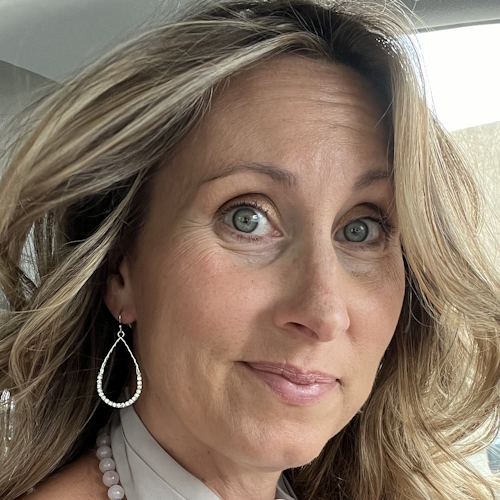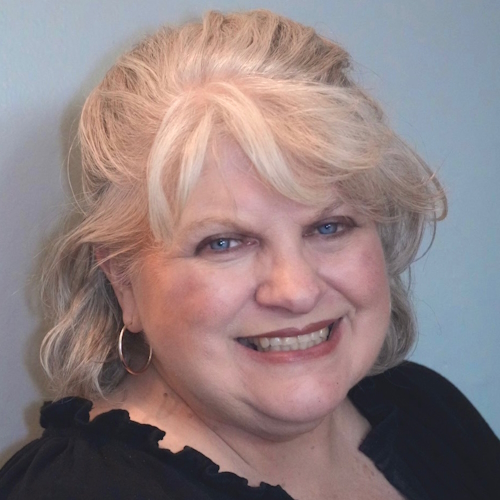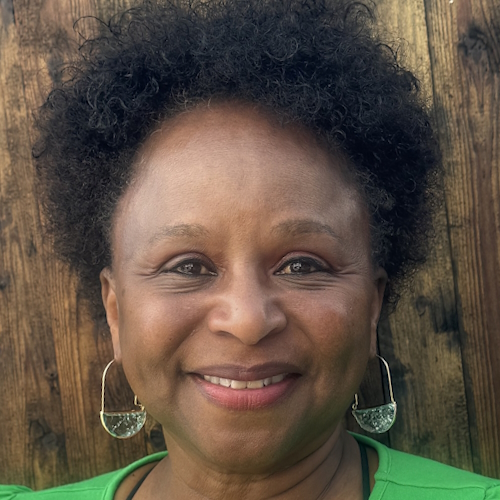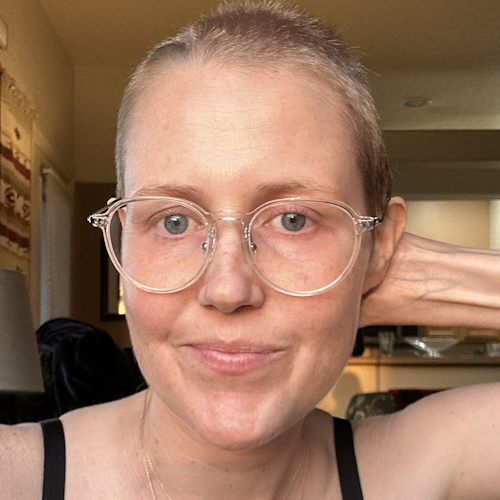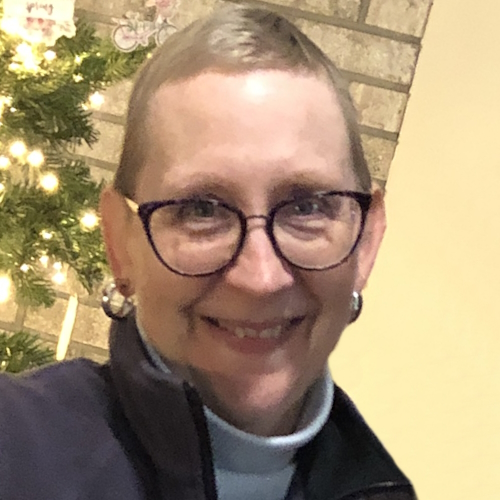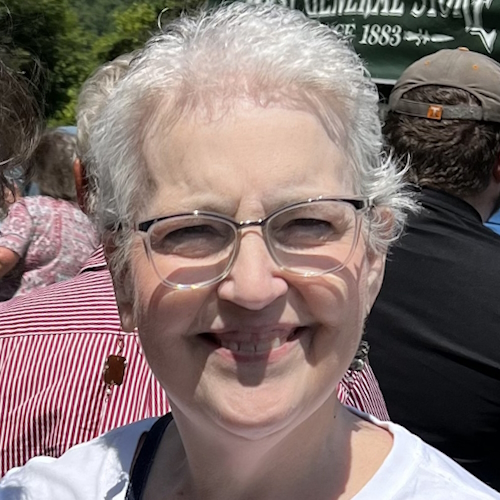Kandie Refuses to Give Up: A Mother’s Journey Through Stage 3 Endometrial Cancer
Can you imagine being a loving mom of three daughters, being given an endometrial cancer diagnosis, almost immediately having a hysterectomy, and starting chemotherapy? Kandie’s stage 3c1 grade 3 endometrial cancer diagnosis in September 2024 left her little time to process everything. Her only symptom was nonstop bleeding for over a year, which led to anemia and multiple transfusions.
Interviewed by: Keshia Rice
Edited by: Chris Sanchez & Jeff Forslund
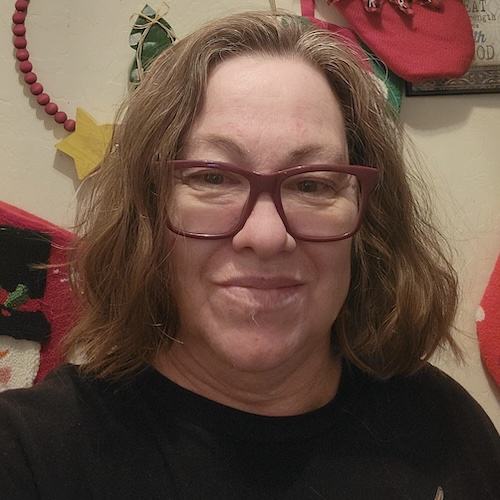
Despite the physical and emotional challenges of endometrial cancer and her treatments, Kandie’s self-identity and mental health remain central to her healing. She admits feeling less whole after her surgery, but she’s working on self-love by embracing small joys like walking, calm breathing, and lighthearted reality TV. Her motivation comes from her family, especially her daughters and young grandson, who give her purpose and hope.
Transitioning to immunotherapy, Kandie is grateful for a proactive medical team that supports her needs and plans. She encourages other women to advocate for themselves, push for answers, and seek support from online communities. Kandie is focusing on making memories with her loved ones and looks forward to hopefully being NED by March 2025.
Watch Kandie’s video and read her story below. You’ll learn more about:
- What she learned from a year of unexplained bleeding
- How Kandie balances treatment, family, and self-love
- The emotional side of living with endometrial cancer
- Why advocating for your health can save your life
- Finding hope and gratitude in the middle of endometrial cancer treatment
- Name: Kandie D.
- Age at Diagnosis:
- 54
- Diagnosis:
- Mismatch Repair Deficient (dMMR) Endometrial Cancer (Endometrial Adenocarcinoma)
- Staging and Grade:
- Stage 3c1 Grade 3
- Symptom:
- Daily vaginal bleeding for over one year
- Treatments:
- Surgery: laparoscopic hysterectomy
- Chemotherapy
- Immunotherapy
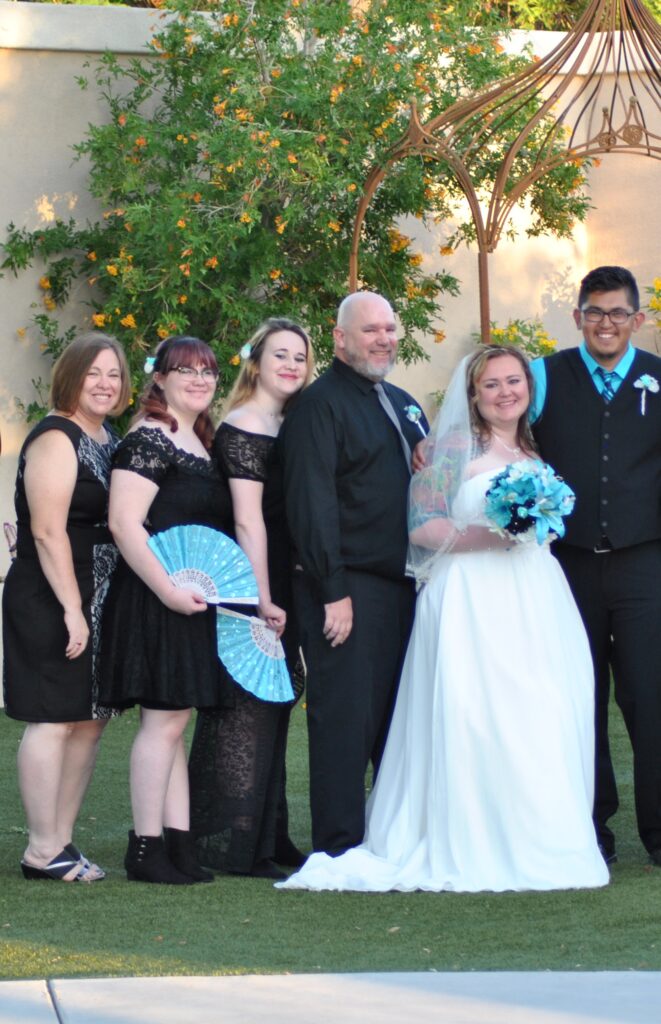

Thank you to Karyopharm Therapeutics for supporting our patient education program. The Patient Story retains full editorial control over all content.
This interview has been edited for clarity and length. This is not medical advice. Please consult with your healthcare provider to make treatment decisions.
- About Me
- When I First Noticed That Something was Wrong
- My Cancer Was Finally Diagnosed — Along With a Genetic Condition
- I Found a Good Medical Team
- I Worried for My Family
- My Treatment for Endometrial Cancer
- Program Highlight: Advanced Endometrial Cancer: Making Informed Treatment Decisions and Accessing Clinical Trials
- I Trust Doctors, Though Some Seem to See Women Differently
- I’m Finding Strength and Gratitude in Many Ways
- My Family is the Source of My Motivation
- My Message to Other Women: Push for Answers
- Dr. Slomovitz Is Also Hopeful for the Future
- I’m Hopeful and Determined to Make Memories With My Family
… hang in there. It can get better.
Kandie D. – Endometrial cancer patient
About Me
My name is Kandie. I was diagnosed in September 2024 with endometrial cancer, stage 3C1, grade 3.
I’m a mom of three daughters. Family and friends know me as someone who always puts others first.
Your life changes automatically right away, once you find out that you have cancer. I’ve been on a roller coaster.
I went from my endometrial cancer diagnosis to having a hysterectomy to undergoing chemotherapy right away. I had no time to prepare. I literally found out what grade I was on November 21 and started chemotherapy on November 25.
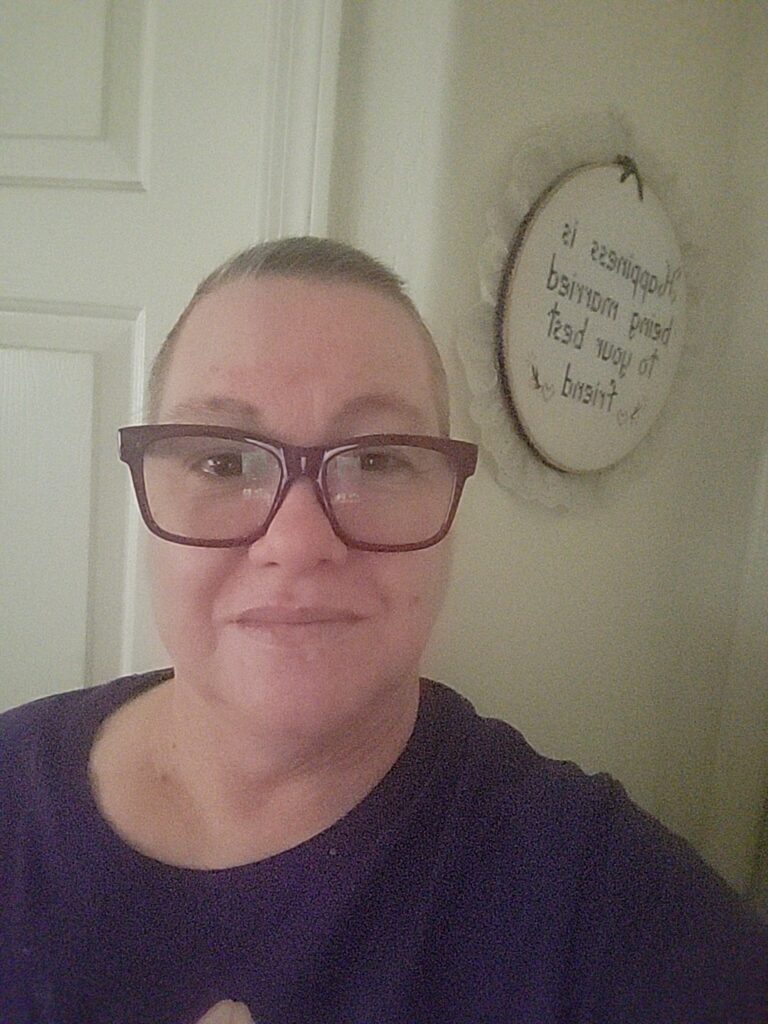
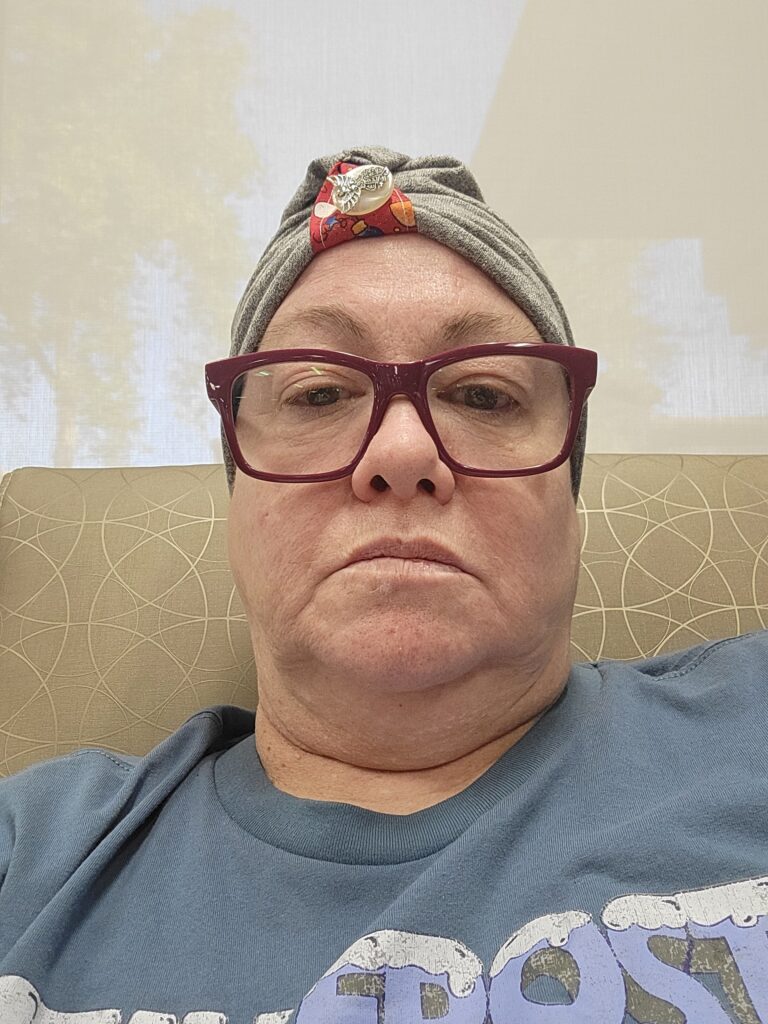
When I First Noticed That Something was Wrong
The only real symptom I had was nonstop bleeding — I bled literally every day for more than a year. I thought in July 2023 that I was going to start menopause, because I hadn’t had my period for two months prior. I was all excited. But I started bleeding in July and didn’t stop.
I was angry, very angry. Every doctor I called would tell me, “You need to be treated. You need to stop bleeding. Come in and we’ll give you a PAP smear.” And I would explain to them and the nurses, and then answer the phone and stuff. My bleeding isn’t stopping. That’s the problem.
It got to the point that I became anemic and needed blood transfusions. And I still couldn’t find answers. And when I finally did learn the answer, it wasn’t at the doctor’s office.
My Cancer Was Finally Diagnosed — Along With a Genetic Condition
I didn’t have any of the symptoms that I assumed you would have with cancer. So I was very shocked. But the scariest thing for me was that I had seen my results before I talked to my doctor, and they had stuck them on MyChart before talking to me.
At first, doctors said I had “regular” cancer. But I had genetic testing, and it revealed something that could complicate my treatment plan: deficient mismatch repair or dMMR.
This means that my DNA repair system isn’t working properly. It leads to more cancer cells. My body doesn’t know how to fight cancer cells or kill them.
I Found a Good Medical Team
So I struggled to get diagnosed in the beginning, but later on, I was thankfully able to get a good medical team. This really made things easier.
I didn’t ask them a lot of questions because I was overwhelmed by everything. But they were very proactive about working with me. The nurse coordinator would come in and explain all the medicines I could have. They also had me talk to the navigation person, who, in turn, told me whom I could speak with if I needed help with nutrition. Another doctor asked me if I needed financial assistance and offered to explain my insurance to me.
So they were really good at pre-guessing what I was going to need help with and might ask questions about.
At first, doctors said I had “regular” cancer. But I had genetic testing, and it revealed something that could complicate my treatment plan: deficient mismatch repair or dMMR.
Kandie D. – Endometrial cancer patient
I Worried for My Family
I was scared for my three daughters. I feared that my endometrial cancer was hereditary and that I had passed it on to them. I didn’t want my daughters to have to go through what I was about to go through.
And so before I had my hysterectomy, I asked my daughters to do genetic testing immediately. We were relieved to find out that my cancer wasn’t genetic, and they didn’t have it.
But I had to deal with another worry after that. I began to wonder if I would be here for my grandkids. I just had a new one last July — am I going to see him grow up? I really want to. So I made a goal for myself, that I would be around for him until he’s at least five years old, until he has a concrete memory of me.
My Treatment for Endometrial Cancer
I did six rounds of chemotherapy. I’m now doing immunotherapy.
The physical effects of treatment have been tough, but it’s also taken quite an emotional toll. Society expects you to be a beautiful person and to have babies and raise a family. But since my insides were taken out, I’m no longer a whole person. I guess I no longer feel like a whole woman.
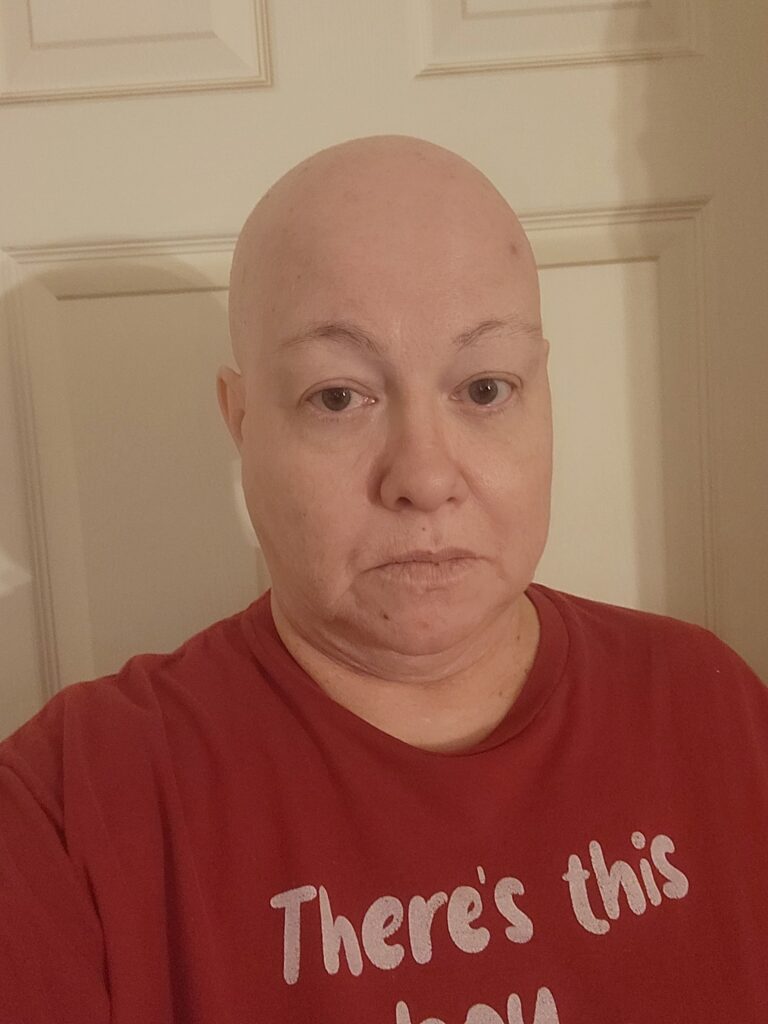
My Endometrial Cancer Story Continues Below
Program Highlight: Advanced Endometrial Cancer: Making Informed Treatment Decisions and Accessing Clinical Trials
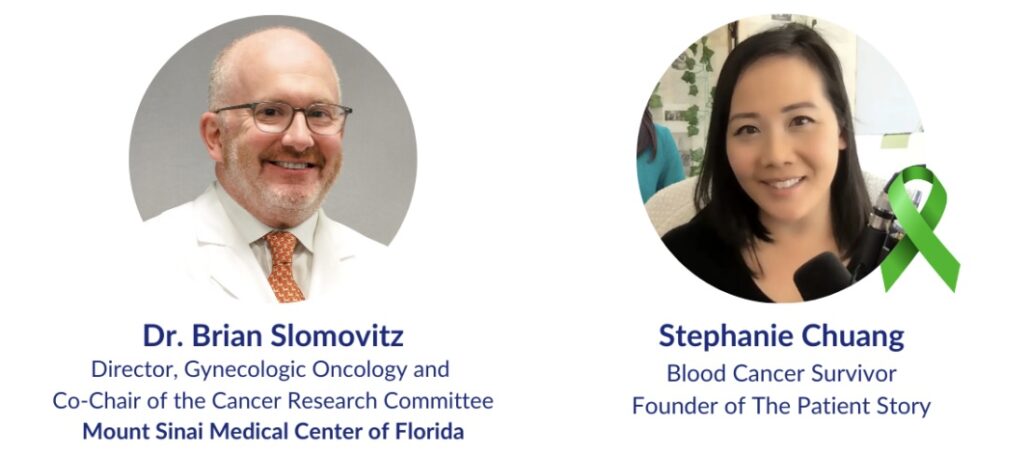
Top gynecologic cancer experts say it’s life-changing, maybe life-saving, for people to know more about what’s going on in treatment options, which are growing in endometrial cancer.
Endometrial cancer is the most common gynecologic cancer, and for many people, it comes with more questions than answers. In this honest, expert-led conversation, Dr. Brian Slomovitz, Director of Gynecologic Oncology and Co-Chair of the Cancer Research Committee at Mount Sinai Medical Center in Florida and The Patient Story’s Stephanie Chuang break down the latest in diagnosis, treatment options, and how to have better conversations with your care team.
Learn about early warning signs, key risk factors like obesity and PCOS, and how biomarker testing and clinical trials are changing the standard of care — especially for advanced and recurrent disease.
Topics:
- Warning signs and symptoms to watch for, including post-menopausal bleeding
- Risk factors that raise your chances, like obesity, PCOS, and Lynch syndrome
- How specialists use biomarker testing to personalize care
- Treatment options beyond chemotherapy, including immunotherapy and hormone therapy
- What clinical trials are, who they’re for, and how to access them — even remotely
- Why it’s okay (and important) to get a second or third opinion
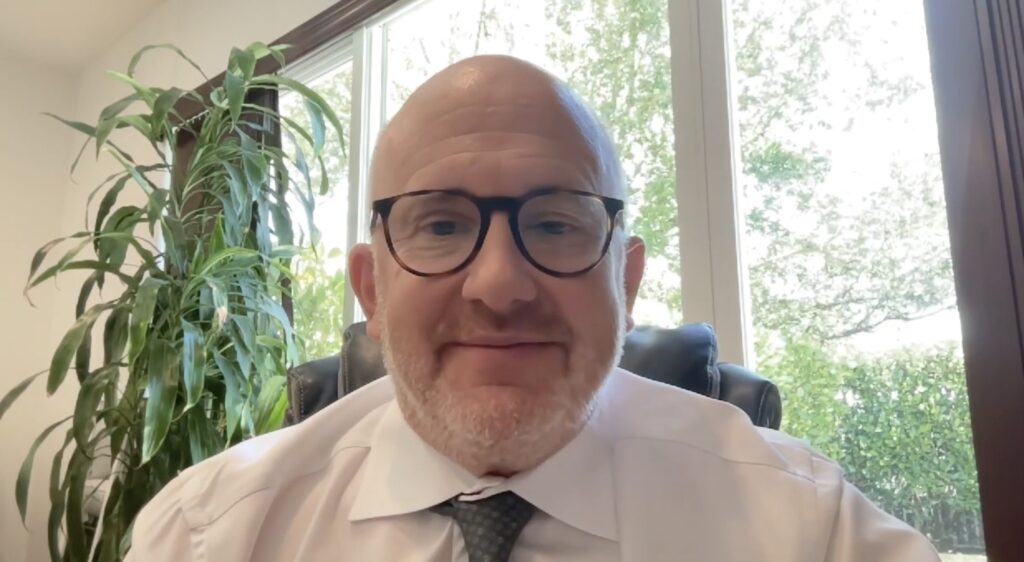
Dr. Slomovitz: Forget about getting rid of chemotherapy. Imagine if we got rid of surgery as well. How great would that be for a patient?
The Importance of Awareness and Early Detection
Dr. Slomovitz: If there are any signs of abnormal bleeding, we really want to educate our patients to go see their healthcare providers. Oftentimes, it could be nothing. It could be a polyp. It could be a premenopausal woman’s abnormal period. But some cancers and precancers can be diagnosed.
Understanding the Risks and Causes
Dr. Slomovitz: The best way to cure cancer is to prevent cancer… There’s a large subgroup of patients who have the typical standard endometrial cancer or something called endometrioid endometrial cancer. This is really driven by obesity. Obese cells, fat cells in the body, produce estrogen. So the heavier a person is, the more likely they are to have higher estrogen levels. And it’s the estrogen that feeds the lining of the uterus, the endometrium, which could transform it into a cancer or pre-cancer.
More women now die from endometrial cancer than from ovarian cancer. We used to think of ovarian cancer as the silent killer.
The standard of care at first is a hysterectomy. After a hysterectomy, we find about 70 to 75%, maybe 80% of patients are diagnosed with stage 1 disease. It’s those other patients that we’re more worried about, the patients with lymph node involvement, or spread to the cervix, or spread to other parts of the abdomen. Those are the advanced-stage patients, and they require systemic therapies. For some of those patients, the recurrence rates could be quite high. Patients with advanced recurrent disease recurrence rates could be 60, 70%.
Some of the high-risk histologies, such as the p53-abnormal group, are the ones that are set up for recurrent disease as well. And we need to come up with more systemic treatment options.
Why Specialist Care Matters
Dr. Slomovitz: We’re not going to rest until we get to 100% cure rates. And I think it’s important to talk to your doctor about what clinical trial options are there, what clinical research is going on. It’s important always to get the right or correct opinion. That means it’s okay to get second or even sometimes third opinions.
A Revolution in Treatment
Dr. Slomovitz: One of my career goals is to get rid of chemotherapy. The response rates of chemotherapy, even in the first line of about 50- 52%, the duration of response or the progression-free survival is only about 14%. Those numbers aren’t good enough.
Considering Clinical Trials
Dr. Slomovitz: It’s OK to get standard of care. I don’t think clinical trials are for all patients, but I think some patients are super motivated and want to improve their treatment options.
For the rest of this interview, watch our program replay ON DEMAND.
Learn what’s changing, how it impacts treatment decisions, and what it all means for patients today.
Back to My Endometrial Cancer Story
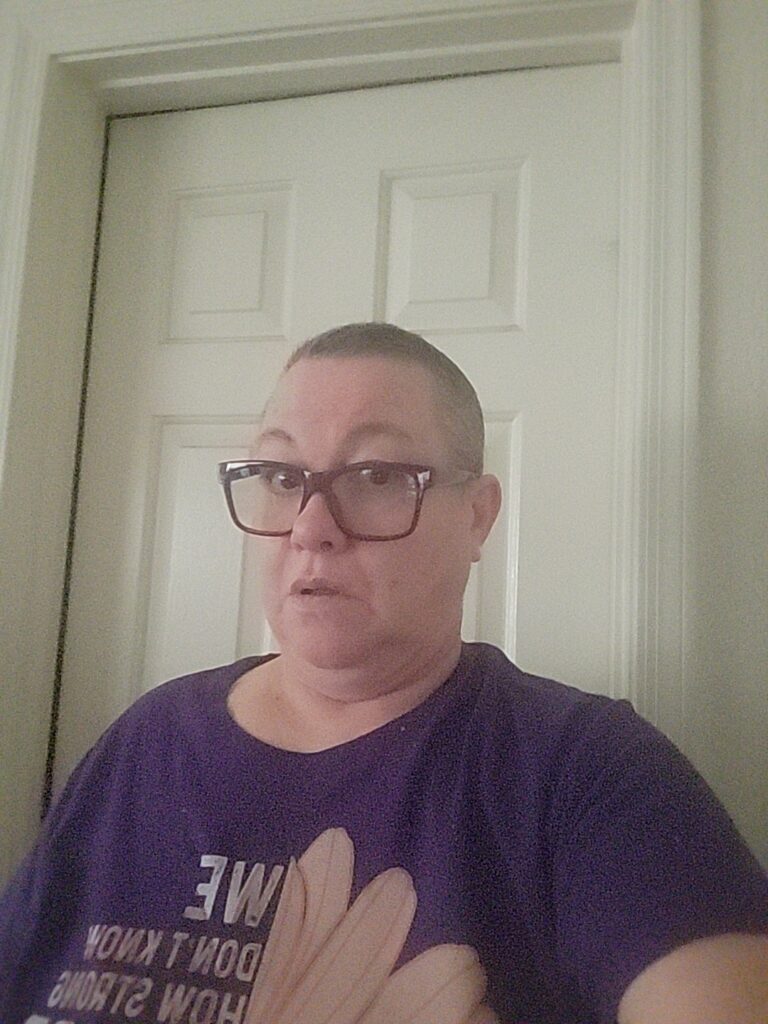
I Trust Doctors, Though Some Seem to See Women Differently
If treatment can prolong my life, I don’t have concerns. I trust the doctors.
I have to say, though, that some doctors look at us differently. Women sometimes are seen as exaggerating or not knowing what we’re talking about, or being unsure. In my opinion, most doctors don’t take us as seriously as they should.
I’m Finding Strength and Gratitude in Many Ways
I’m working to find strength, be grateful, and maintain my mental health.
I do a lot of walking and calm breathing. I do fun things like watching reality TV. Watching things that I know are staged helps me get out of my head and out of that everyday loop. It helps me be grateful for what I do have.
My Family is the Source of My Motivation
When I have down moments, my family members are the ones who motivate me the most. My immediate family, my husband, my daughters, my grandma, my son-in-law, and my grandsons. We’ll tease each other, and it breaks the ice if I’m having a hard time. They know they can hug me.
I’m working to find strength, be grateful, and maintain my mental health.
Kandie D. – Endometrial cancer patient
My Message to Other Women: Push for Answers
If you know something’s off, if you’ve been bleeding for way too long, push for the gynecologist to look at you. Push hard. Tell them no if you need to. You’re not taking no for an answer. You’re coming in.
If you’re newly diagnosed with endometrial cancer, hang in there. It can get better. Join the groups that are on social media. The women there will always help you get through it.
Dr. Slomovitz Is Also Hopeful for the Future
He believes newer treatment options will give all of his patients longer and fuller lives.
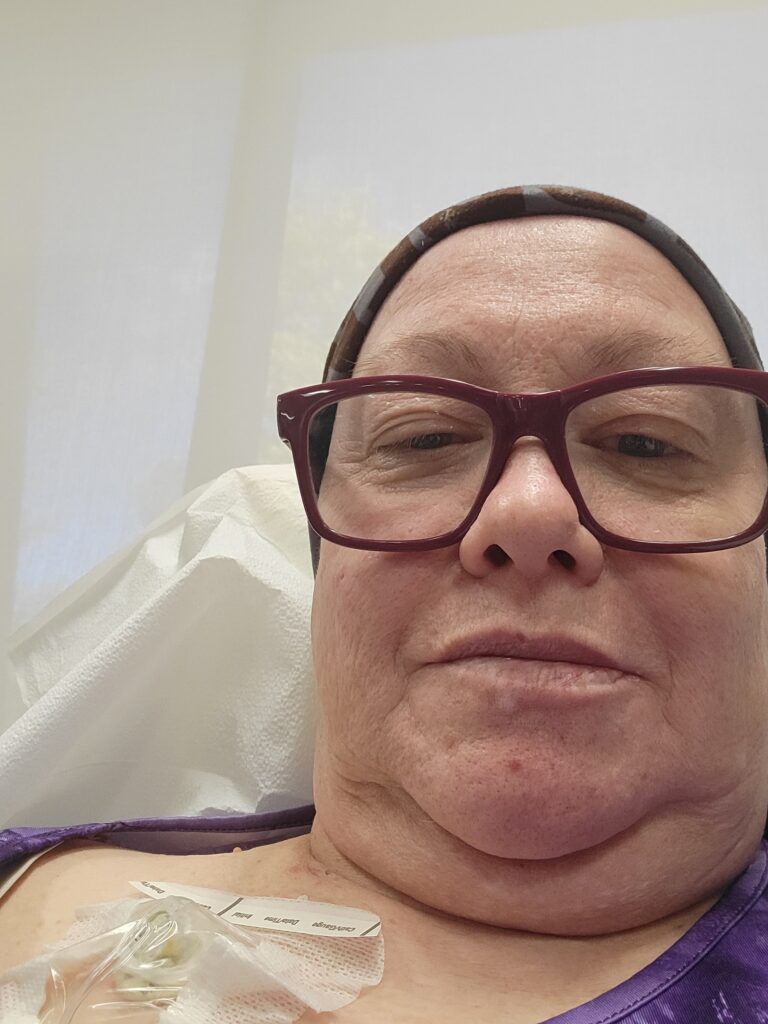
The future’s bright. We’re becoming better and better with our treatment options. It used to be that women with endometrial cancer would get one or two lines of therapy, and then the disease was so aggressive, they’d succumb to their disease. Now patients are getting three, four, or even five lines. And as we move forward, we’ll get more and more lines of therapy with the latest and greatest therapies.
Dr. Brian Slomovitz – Director, Gynecologic Oncology;
Co-chair, Cancer Research Committee, Mount Sinai Medical Center

I’m Hopeful and Determined to Make Memories With My Family
I’m hoping to be NED in March 2025 so that I can be done in April.
And after that, I’m excited to hopefully be able to take vacations.

Special thanks again to Karyopharm Therapeutics for its support of our independent patient education content. The Patient Story retains full editorial control.

Inspired by Kandie's story?
Share your story, too!
More Endometrial Cancer Stories
Willow B., Pelvic Cancer, Grade 1, Stage 2.5
Symptoms: Persistent fever-like chills, scratchy throat, fatigue, post-orgasm pain, heavy bleeding, severe cramping
Treatments: Surgery (radical hysterectomy), radiation, chemotherapy, hormone replacement therapy (HRT)
...
Mary M., Endometrial Cancer, Stage 4B, Grade 2
Symptoms: Unusual fatigue, urinary tract infections, extreme pain on the right side of the abdominal area
Treatments: Surgery (hysterectomy), chemotherapy, immunotherapy
...
Margie W., Endometrial Cancer, Stage 1B, Grade 3
Symptoms: Persistent irregular bleeding
Treatments: Surgery, chemotherapy, brachytherapy
...
Lexie W., High-Grade Endometrial Stromal Sarcoma
Symptoms: Prolonged period, severe cramps, difficulty breathing
Treatments: Surgery, chemotherapy, proton beam therapy
...
Kandie D., Mismatch Repair Deficient (dMMR) Endometrial Cancer (Endometrial Adenocarcinoma), Stage 3c1 Grade 3
Symptom: Daily vaginal bleeding for over one year
Treatments: Surgery (laparoscopic hysterectomy), chemotherapy, immunotherapy
...
Gigi D., High-Grade Serous Carcinoma, Stage 1A, HER2+, PR+, ER-
Symptoms: Hiccup-like sensations behind the sternum, gastrointestinal issues, spotting
Treatment: Chemotherapy (carboplatin & paclitaxel)
...
Ellen P., Endometrial Cancer, Stage 3C, Grade 3
Symptoms: Felt like either a UTI or yeast infection
Treatments: Chemotherapy (carboplatin and paclitaxel), surgery (hysterectomy), radiation
...
Colleen J., Endometrial Cancer, Stage 4 (Metastatic)
Symptoms: Very large blood clots during menstruation, anemia
Treatments: Chemotherapy, radiation therapy (brachytherapy), surgery (full hysterectomy), immunotherapy
...
